Posted on 5/29/2023
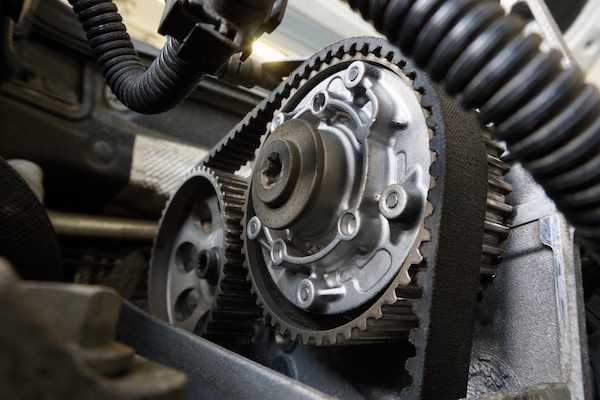
Your vehicle's engine is a marvel of precision and synchronization, with countless components working together to ensure its smooth operation. One such crucial component is the timing belt. Although hidden beneath the engine's cover, the timing belt plays a necessary role in maintaining the engine's proper timing and ensuring optimal performance. The Importance of the Timing Belt The timing belt is responsible for synchronizing the crankshaft and camshaft(s) rotation in your engine. It ensures that the valves open and close at the right time, allowing the pistons to move up and down without interference. This synchronization is vital for proper combustion, efficient power delivery, and overall engine performance. When to Replace the Timing Belt Timing belts are subject to wear and tear over time, and their replacement intervals vary depending on the vehicle's make, model, and manufacturer's recommendations. Generally, it is suggested to change the timing b ... read more
Posted on 4/28/2023
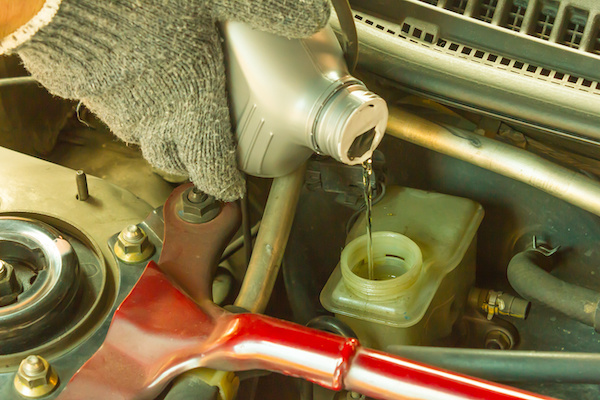
If you're a frequent visitor of the auto repair shop, you’ve probably heard the terms “fluid change” and “fluid flush” being thrown around before. While they both refer to the process of replacing a car's fluid, they are not interchangeable terms. There is a distinction between the two terms, and we'll discuss them in our blog today! Fluid Change vs. Fluid Flush: What’s the Difference? A fluid change involves draining the old fluid and refilling it with new fluid. This method replaces only a portion of the fluid in the system, leaving some of the old fluid in place. A fluid change is typically less expensive than a fluid flush, but it doesn’t clean the gunk out of the system. A fluid flush, on the other hand, involves completely clearing out all the old fluid and replacing it with fresh fluid. This more intricate process involves using specialized equipment to flush out all the old fluid and debris that may have accumulated in t ... read more
Posted on 3/29/2023

Spring is finally here, and it's time to start thinking about getting your car ready for the warmer months ahead. After a long winter in Denver, your car, SUV, or truck may need some extra attention to ensure it's running smoothly and ready for the road ahead. Here is everything you should add to your vehicle's maintenance checklist this spring. Change Your Oil and Monitor Fluid Levels Start by changing your car's oil and oil filter. Doing so will help eliminate any contaminants that have built up in your engine over the winter months. While you're at it, check your car's fluid levels, including the transmission fluid, coolant, brake fluid, and power steering fluid. Check Your Tires Check your tire pressure and tread depth. Properly inflated tires can help enhance fuel efficiency and prevent tire wear, while good tread depth is essential for safe driving. You should also rotate your tires and get a wheel alignment if necessar ... read more
Posted on 2/28/2023
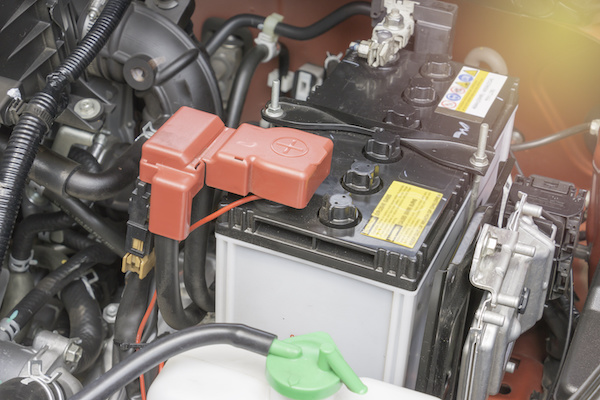
Car batteries are essential components of every vehicle; without them, our cars wouldn't start. However, most car owners don't give much thought to their car batteries until they fail, leaving them stranded and needing a jump start or tow. To avoid a major inconvenience, you need to understand how to take care of your car battery to extend its life and avoid unexpected breakdowns. Here are some tips to help you make your car battery last longer: Keep your battery terminals clean: Over time, corrosion can build up on the battery terminals, leading to poor electrical connections and a reduced battery lifespan. To prevent this, clean the battery terminals regularly with a mixture of baking soda and water, and remove any buildup with a wire brush. Avoid short trips: Short trips don't allow your battery enough time to recharge fully, which can cause it to drain and reduce its lifespan. If you frequently take short trips, consider using a batt ... read more
Posted on 1/30/2023

The American Automobile Association (AAA) states that winter vehicle crashes and road fatalities account for the highest number of such incidences in the US. Winter driving is considered dangerous even for the most experienced drivers, but if you are well prepared, you remain safe. Top Winter Driving Tips Staying alert, in control, and slowing down are vital elements to safe winter driving. Years of experience in testing and driving cars in freezing conditions show that following these simple tips will enhance and keep you safe. Stay Home or Slow Down If you can avoid driving in winter, it would be great. But if you must drive, avoid speeding. The traction is lower on ice and snow and takes longer to stop. Wear a Safety Belt Always In snowy conditions, accidents are high regardless of the distance. A seatbelt in such eventualities can save your life significantly. Increase the Distance between Cars Avoid driving too close to other vehicles due to low traction. You can apply th ... read more
Posted on 12/30/2022
.jpeg)
Servicing your brake system and making sure they are in good working condition will save you money, your vehicle, and (in some cases) your life. Brake pads, brake caliper, and rotor are the main components of your car's braking system that need regular maintenance. Brake pads are one of the brake components that will wear out first. How often they require replacing depends on factors like driving habits, traffic conditions you operate in, and the materials that make up the brake pad. But how do you tell if it's time to replace your brake pads? Here are warning signs that indicate you need new brake pads. Screeching or Squealing Noises When you notice a squealing or screeching noise every time you hit the brakes, it is a sign your brake pads need replacement. If you don't replace them early enough, you will experience a grinding or screeching noise. Some brake pads have metal wear indicators that make loud noises to remind you to replace the pads. Please don't rely o ... read more
Posted on 11/23/2022

With the holidays finally, here, millions of Americans are planning to hit the roads with the intention to visit friends and family far and wide. There are potential hazards that you might run into such as inclement weather, traffic congestion, and more. We thought it would be helpful to share several safety tips to take with you on the road: Plan Your Route - Before your departure, it is best to check the traffic conditions. Are there jams? What about accidents or construction projects? Such conditions may impact your ETA and slow down your travels. Furthermore, you should check the weather reports. Prep for Winter Driving - Speaking of weather, are you expecting snow or sleet? If so, you should expect low visibility and slippery roads. This is where your windshield wipers, tires, and brakes become more important than ever. We recommend checking these critical components before heading out of town for the holidays. Always Buckle Up - Wearing your seatbelt is the simplest and impac ... read more
Posted on 10/28/2022
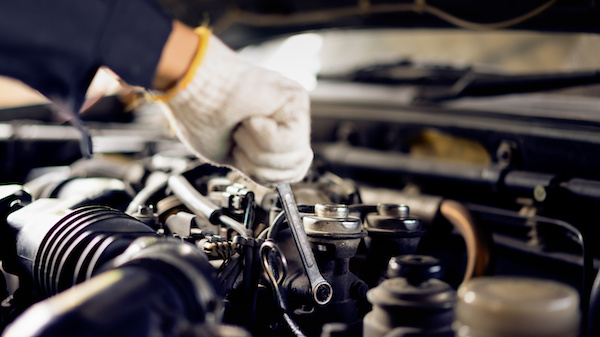
A tune-up for your car can mean many things for different people. But eventually, you will need to get one for your car. What are the signs? What are the symptoms? Here's what they are below. Signs that you need a tune-up soon for your vehicle Vibrating more than usual You notice your car is vibrating more than usual. This could be a sign that the engine bearings are wearing down, which is a serious problem that will only get worse without proper maintenance. Check engine light comes on The check engine light comes on, or you notice an unusual smell coming from your exhaust pipe, such as burning oil or gas. These are both signs that something is wrong with your engine and needs immediate attention. Car has a hard time accelerating Your car starts hesitating while accelerating, or you hear a loud knocking noise when the engine is running on cold days. These problems could be caused by worn-out spark plugs and other internal parts of the engine which need rep ... read more
Posted on 9/30/2022
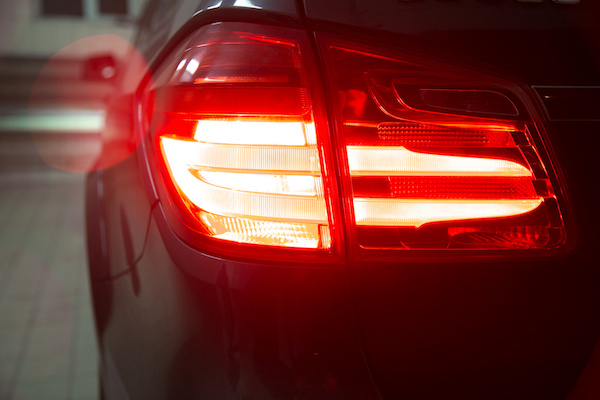
Driving with dim, blinking, or blurry lights can put yourself and others at risk of an accident. Not only do bad headlights reduce your ability to see clearly at night or in foggy or rainy conditions, but it makes it harder for other drivers to detect you as well. As a friendly reminder from your favorite neighborhood shop, South Denver Automotive, we’d like you to check that ALL your car lights are working properly to ensure safe driving this fall! Checking your lights can take a matter of minutes, and all it requires is a quick walkaround. If you want to check all your lights, it may be helpful to grab a friend to make the job easier. Here are the following lights that you should check: Headlights - These should have adequate brightness and aim at the right angle. Fog lights – These lights are great for driving in foggy conditions. Though they aren’t used as often as headlights, they will come in handy. Daytime Lights – These a ... read more
Posted on 8/30/2022
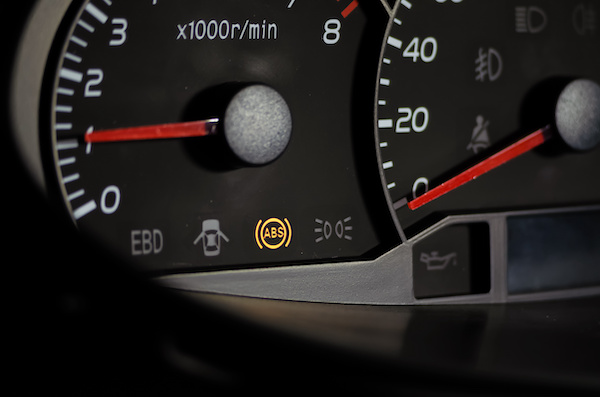
So you get into your car and see the bright letters, “A-B-S” on your dashboard. Those letters stay on there as you keep driving. What should you do next? And what does it all mean? Read on to learn more. The ABS, or anti-lock braking system, is responsible for preventing your vehicle’s wheels from locking up. Therefore, it allows you to have more control of your vehicle and minimizes your chances of skidding across wet conditions. When you press really hard on your brakes, the sensors on your vehicle’s wheels lets the ECU know that you might skid. What Causes the ABS Light To Come On? There are many potential reasons why your ABS light is on. Here are some instances below: Low brake fluid – The first thing you should check after you catch the ABS light is your brake fluid reservoir. When levels of DOT fluid have dropped significantly, the light will come on. You should top off your fluid and bring your car to an expert to check for leak ... read more